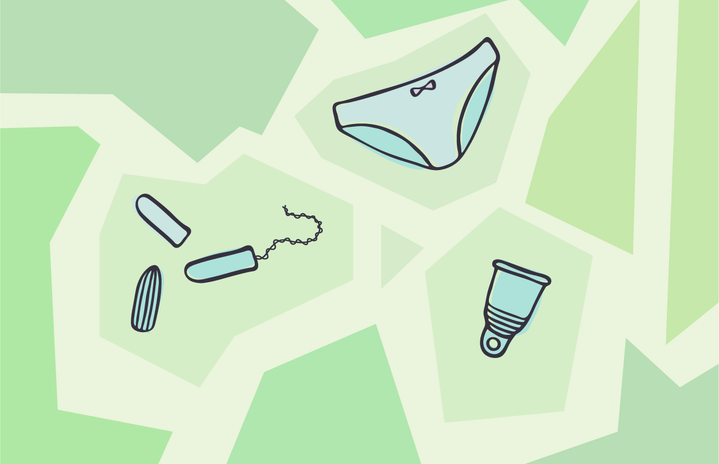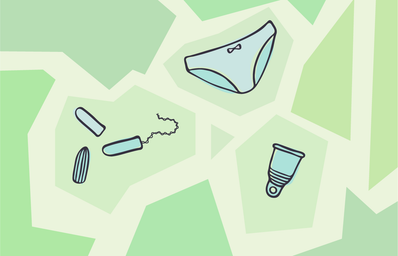Recently, there has been a lot of coverage in the news about periods and it is great to see this issue being called to attention. However, the increased attention has not proved to be a good news story as we are still fighting the same old battle of trying to make period products more accessible to all!
In July 2020, WUKA; a company producing period underwear, called on the Government to lower tax on period pants through a petition (which you can sign here) to “recognise period pants as a menstrual product so that they can be taxed fairly.”
Disposable menstrual products are subject to a five per cent luxury tax. Despite the passing of the Bill enforcing zero taxation for disposable menstrual products set to be in effect from January 2021, WUKA period pants are still currently taxed at 20 per cent.
When comparing this taxation to the so-called essential items which pay zero per cent tax in the UK, such as Jaffa Cakes, the absurdity of the current situation presents itself.
Yes, Jaffa Cakes are amazing, we can all agree on that, but should they be paying zero per cent tax whilst sustainable period pants are still paying 20 per cent?
Apparently, yes.
On the 22nd September, the Government responded to WUKA’s petition by saying that there would be no further action on reducing tax and that “difficulties in policing the scope of the relief create the potential for ligation, erosion of the tax base and a reduction in revenue.”
In essence, the Government stated that they do not want to risk their tax revenue created solely from people who have periods – and why would they when women and menstruators brought in so much tax for the Treasury? Before the tax was made to zero per cent, the average woman would spend £44.40 of VAT on tampons equating to over £1.4 billion in tax for the Treasury (according to statistics from an online accounting service, Crunch)
Another quote taken from the Government’s response stated: “However, period pants may qualify for the zero rate when designed for children under the age of 14 years old”. At first glance, this may sound like quite a progressive approach from the Government. However, they go on to say: “providing they meet certain maximum sizing limits.”
Not only is this a blatant exclusion of children who do not conform to the extra small size; which is made according to the ‘normal’ size of a child, it is also a very problematic approach in the effort to make period pants more accessible! It seems a poorly considered idea and a truly regressive step in the endeavour to encourage body inclusivity.
As well as this, WUKA has released information that by buying only one pair of WUKA pants, you cave save 100 tampons and pads from being thrown away into landfill or flushed into the sea! Almost 90% of pads contain plastic, according to the National Geographic, meaning they have horrific environmental impacts as the plastic begins to breakdown in the earth or sea and releases plastic microfibres containing toxins such as chlorine and dioxin.
Moreover, a hidden environmental impact is the sheer volume of water needed to grow cotton, which is coupled with high pesticide use for the cotton used to manufacture tampons. In a report published in 2019, researchers carried out testing on the use of tampons and on the chemicals associated with them. Results showed indications that “tampons may be a source of exposure to metals and chemicals that have been largely ignored, and any related health effects are an important public health concern.” Although not conclusive, this is a worrying connection between the use of tampons and their harmful effects to our bodies.
I myself have bought two pairs of WUKA pants and I have personally found them to be a better alternative to disposable pads. Unlike conventional pads, I find them very comfortable as they are not itchy or sticky at all and they also have a lifespan of two years. They provide a greater sense of security for me when I am on my period as well as better absorbance (I would have definitely benefitted from having something like this when I first started my period due to the ease of them!)
However, the price point is high.
The heavy flow pants cost me £24.99 each. This is obviously not an affordable price point and excludes many people from being able to purchase them as an alternative. The fact that more sustainable and long-lasting menstrual products have a premium price put on them due to the tax rate seems wholly unmerited. This prohibits many women from being able to afford these products which in turn has a detrimental impact on the environment and our own health. A reduction of the tax rate would allow many women a more sustainable, comfortable and trouble-free period.
It is clear that opinions on period equality must be highly publicised for the Government to realise that an alternative such as period pants should not be subjected to an added tax barrier!
We must change the unhealthy narrative that periods will always be difficult to deal with and can only be managed with tampons and pads. Reducing the tax on period pants will make products such as those provided by WUKA more available and you can help achieve this by signing the petition here!
Websites:
Useful instagram accounts:
Words By: Maddie Baker
Edited By: Anthea Pei


